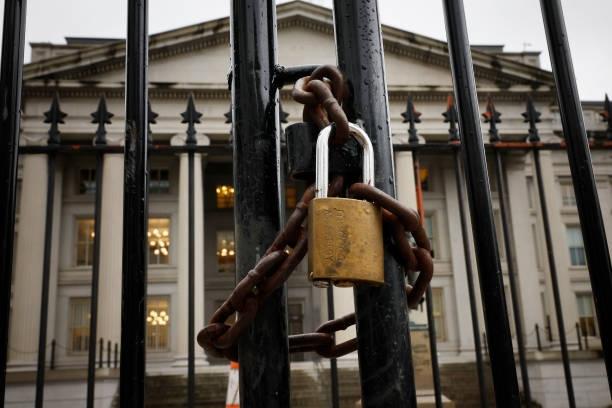Imagine waking up one morning to find your business locked out of the financial system. No bank account, no way to process payments, no payroll. For creators and entrepreneurs driving the digital economy, this is more than an inconvenience—it’s a modern form of economic exile, known as “debanking.” In 2024, this shadowy practice has come under a spotlight, with tech leaders like Marc Andreessen calling out its increasing use against crypto founders, independent creators, and even those with certain political beliefs.
The implications of debanking, with its roots in Operation Choke Point, pose a direct threat to the creator economy—a sector poised to inject half a trillion dollars into the economy by 2027. If we want to grow our way out of debt and inflation, supporting the financial freedom of these creators is not optional. It’s essential.
The Rise of Debanking
As we near the end of what is being portrayed as one of the most pivotal years in American history for tech, politics, and society, it would be hard to imagine many people having debanking on their bingo card of topics that would break into the final ephemeral news cycle. Yet here we are, and perhaps it actually shouldn’t be all that surprising given that we may end up looking back at 2024 as being the Year of The First Internet Election, supported by the “new media” podcasts and the X platform.
Any discussion that touches cryptocurrency, Joe Rogan, government agencies subject to D.O.G.E. efforts, etc., is given to be debated with great virality.
So when Marc Andreessen appears on the Joe Rogan podcast and shines a light on the prevalence of debanking being shadow-enforced by the CFPB on crypto founders and those of certain political beliefs, the fintech and broader tech world got very excited.
A traditional take on debanking is simply the closure of a person’s or organization’s bank account(s) due to perceived financial, legal, regulatory, or reputational risk to the financial institution—which seems reasonable in a vacuum and if applied objectively without bias. According to Andreessen, however, intentional and unjust efforts started here ~15 years ago under the Obama administration with Operation Choke Point, a government initiative designed to cut off access to banking services for certain industries deemed “high-risk,” such as legal marijuana businesses and firearm dealers. The program aimed to pressure banks to stop servicing these industries, effectively sidelining them from the financial system.
Operation Choke Point: Past and Present
What we are talking about here are essentially sanctions. Debanking is the complete removal from being able to participate in the real economy, being forced to operate with cash and armored vehicles—the modern-day equivalent of horse and buggy.
More specifically, debanking is taking away the ability to “open bank accounts, get a Visa terminal, process transactions, run payroll, access direct deposit, or get insurance.” This was referred to as Operation Choke Point 1.0.
The extension to “political enemies and disfavorite tech startups,” which includes the roughly 30 founders in the Andreessen Horowitz portfolio alone, is being known as Operation Choke Point 2.0…Catchy.
While sympathy may be well merited here in and of itself, it may be even more interesting to take a broader perspective on these debanking efforts and ask whether Operation Choke Point 2.0 is just the canary in the coal mine to something much more significant that should cause real concern for anyone betting on economic growth to be the antidote for debt and inflation. Bitcoin is (as of this writing) at an all-time high, boasting a market capitalization of more than $2 trillion. The buzz around stablecoins is persisting beyond Stripe’s largest acquisition to date. But what if these efforts evolve into mass deplatforming of the creator economy, resulting in the crippling of Gen Z and Gen Alpha entirely?
The Threat to the Creator Economy
The Information hinted at this earlier this year when they highlighted the creator economy platform Throne and the challenges they faced with their payment processor, Stripe. As the article discusses, it’s actually the underlying financial institutions—in this case, Wells Fargo or Goldman Sachs—who set the rules.
Stripe is both too close to Gen Z and Alpha’s preferences (i.e., they know this is the future) and the actual data—having paid $25 billion in creator earnings through 50 different sites. They don’t want to let such a large chunk of volume and future growth be siphoned off by a banking partner—and they shouldn’t! But they are subject to the whims of the pressures being put on regulated financial institutions who support their underlying acquiring.
Venture capitalists are also taking note of the creator economy. In 2021, Slow Ventures announced they were setting aside $20 million to invest in individual creators, and earlier in December, Tripp Jones, a partner at Uncork Capital, penned a very honest and bullish piece on what he calls the Entrepreneur Economy while announcing their investment in DubClub.
Even without the fullness of Tripp’s entrepreneur economy being included, Goldman Sachs believes the creator economy could approach half a trillion dollars by 2027! Just a few months ago, in September, OnlyFans announced a record-breaking 2023 with $6.6 billion in revenue, and Kajabi hit over $8 billion in total payouts to its creators.
It’s becoming abundantly clear that the creator economy is the next wave of consumer economic growth. If we continue to neglect this industry, there will be significant ramifications—for all of us. These companies and solopreneurs already navigate a maze of regulations that are designed to ensure what they are doing isn’t money laundering or terrorism.
Having banks “pause” or “refrain from providing” services won’t help.
Several members of Congress have sponsored the Fair Access to Banking Act, which would force card networks and financial services companies to do business with any person who is in compliance with the law. This seems incredibly rational and smart—and more comprehensive than the SAFE banking efforts for the original victims in the marijuana industry—while also toeing the line between the deregulation push by D.O.G.E. and the broader MAGA movement with the simple concept of “if it’s legal then it’s legal, if it’s illegal then it’s illegal.”
If the strategy is to grow our way out of the crisis associated with our national debt, then we MUST empower the next generation of creators and entrepreneurs with clear, fair, transparent, and easy-to-understand rules. We must support the builders behind platforms like Passes, Whop, and Throne.
Let fintech—from banking to payments—lead the way and show the world what’s possible.
If 2024 was the Year of the First Internet Election, then 2025 is, in some sense, year one of a fully digital Internet-based economy. We need banking and financial services to support these creators and entrepreneurs—not deplatforming and debanking.
Because you know what’s cool? Half a trillion dollars going into our economy. That’s cool.
Read the full article here











